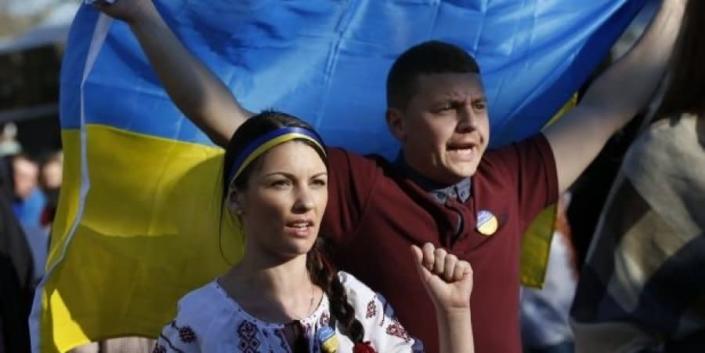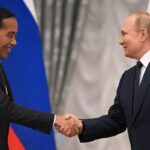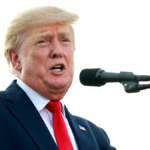
The very language that he speaks empowers him to invade any country where it is spoken. And so Ukraine must be attacked, and anyone who thinks or speaks of Ukraine must be killed, deported, or humiliated.
By way of these deep misunderstandings, Putin has unintentionally placed the Ukrainian state and the Ukrainian nation at the center of world history, for everyone to see.
Matters are murkier in his Russia. Everyone is looking at it, or perhaps rather for it. What sort of nation asserts itself by way of scripted public formations of the letter Z?
In what kind of state does a single individual make existential decisions for the whole country on the basis of eccentric articles of faith about another one?
Putin claimed last week that Russian culture had been “canceled” by the West, but more plausible accounts of the origin of our new Russian Question are near at hand.
Putin’s war is made in the name of Russia, and the killing and maiming and abducting and deporting are being done by tens of thousands of Russian citizens. This makes it hard to speak of Russian culture just now.
Read also: Hybrid war from Lenin to Putin
It takes labor by thousands of Russians to produce the unceasing televised propaganda that persuades mothers and fathers not to believe their children in Ukraine.
It also takes labor by thousands of Russians to suppress other media.
It takes violence by thousands of Russians to suppress those with a mind and the will to speak it.
Russians who carry blank pieces of paper in protest are arrested.
Russians who carry signs with Bible passages are arrested.
Russians who carry signs with only asterisks are arrested. Russians wearing blue and yellow hats are arrested.
Russians who carry anti-fascist signs are arrested.
Putin’s police know that anyone talking seriously about fascism is talking about him. In regime propaganda videos, the police are the protaganists: first, their presence inspires fear, then you are meant to feel relief as you realize that the police are on your side so long as you conform in advance to the regime’s demands.
In one such video, the police sprint from their van toward a group. The viewer is supposed to worry: the policemen are going to beat the crowd!
But instead, they lock arms to form a giant Z, the symbol of the invasion. Good: the senseless violence is not directed against us, but against the Ukrainians. Everyone relax. Is that culture?
Like Hitler’s swastika, the Z has no inherent significance. It functions as a stand-in for culture: we display this meaningless symbol in order to buy time for excuses for mass murder that we will think up later. We pin ribbons on our clothes so that we do not have to say anything with our mouths.
We form it with our bodies as an act of loyalty to an undefined cause. We are expressing our readiness to accept that definition, whatever it might turn out to be. We are obeying in advance.
We write the Z on the doors of dissenters to threaten them. It is against the silencing violence of empty ritual that the staggering courage of individual Russian dissenters must be measured. And it is within this whorl that the utterances of Putin fall.
There is no one left to question what he says, nor apparently to mediate it. He speaks now from the heart, using the term “Russian culture,” but also the term “self-cleansing,” complaining of maligning others as he abolishes it himself.
He has reached peak tyranny, and therefore peak irony.
Read also: Why is the Russian dictator so obsessed with Ukraine?
Putin has taken the greatest home of Russian-language culture, Russia itself, and tried to silence it. High culture has collapsed in Moscow as the talented flee or are punished. The social sciences and world culture have been dropped from the curriculum of Russia’s teaching academies and universities.
Ukraine is a bilingual country where people speak Ukrainian and Russian. It can be seen as the second-greatest home of Russian-language creativity. Putin is trying to destroy that. His invasion has silenced forever thousands of voices. Putin has claimed that Russians beyond Russia are scum, traitors, and insects. What is left?
When a culture is defined as self-isolation, it ceases to exist.
The associated procedures of denunciation, persecution, and conformism generate a culture of sorts, but one that is entirely generic, that has nothing specifically to do with Russia, one that is sadly universal.
A culture has to involve encounters. Russian culture has been deeply involved with Poland, Germany, the United States, and everything that is now defined as alien and untouchable. It owes a deep and unacknowledged debt to Ukraine.
Mayakovsky portrays culture arising as we come to understand our own haughtiness as the mask of ignorance. Russians, in his poem, purport to know everything about Ukraine, and thereby know less than nothing. It is just a matter of time (if it has not already happened) before a Russian carrying a poster with lines from “Debt to Ukraine” is arrested.
(Here is a poem, read a few days ago in Russian).
A culture collapses inward when a tyrant believes that God, history, and language speak through him to demand what Putin calls “self-purging” violence. When Putin claims that Russian culture has been canceled by the West, he is seeking to make an argument about freedom of speech.
The obvious irony is that he is responsible for more “cancelation” of Russian culture than anyone else in the world. But there is a deeper problem. It is as if being the world’s richest man and ruling the world’s largest country were somehow not enough to allow him to say what he wants.
Putin is revealing a problem with the “cancel culture” meme by taking it to its logical extreme. When we complain of “cancel culture” we seem to be saying that we wish for contact. But the complaint is deployed to insist upon domination.
If the most privileged man on the planet can claim to have been canceled, what can the phrase really mean? Does the grievance it expresses perhaps arise from fear that others might disagree for reasons of their own? Or from the nagging anxiety that one’s own arrogance is not the same thing as attainment?
Culture arises from contact, but contact requires humility. An encounter is only an encounter of we do not know just how the other person will react. I get the impression that when speak of “cancel culture” we are complaining not so much about freedom of speech, but about the fact that not everyone agrees with us and falls into line.
Read also: A psychiatrist explains why Putin hates Ukraine and Ukrainians
Freedom of speech does not mean that everyone in your country starts to make giant alphabet shapes with their bodies when you say so, nor that everyone in a neighboring country submits to your judgment that they do not exist. Putin’s freedom of speech is not violated if Ukrainians act according to their own convictions and resist him.
Indeed, it is the convictions of the diverse millions who consistently act, not the lies of the lonely dictator who haltingly speaks, that deserve our attention. The actions of Ukrainians during this terrible war inspire respect, and humility. Ukrainian resistance has altered all of our cultures, no doubt for the better. In one way or another, it has brought an encounter, one that we did not expect, one whose consequences are unpredictable.
We all owe a debt to Ukraine.
This column was first published on Substack. NV is republishing it with permission from the author.




